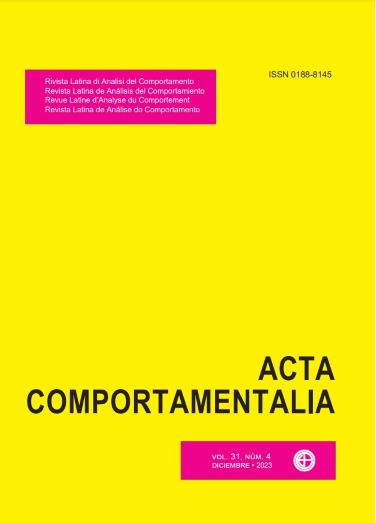“Get connected”: evaluation of an education program for couples
DOI:
https://doi.org/10.32870/ac.v31i4.87206Keywords:
couples, educational program for couples, marital intimacy, marital satisfaction, marital communication, marital quality of life, intervention, evaluationAbstract
Romantic relationships permeate the entire individual development cycle, impacting areas such as physical and emotional health, parenthood, and well-being. Among the aspects considered important for the quality of couple interaction is intimacy, considered a predictor of various positive aspects of interaction. Interventions aimed at preventing detrimental effects through strengthening the couple’s relationship are, therefore, welcome. Educational programs for couples with this objective are described, tested, and disseminated worldwide; however, initiatives that prioritize intimacy are difficult to find. In the Brazilian context, educational programs for couples of any kind are even scarcer. Thus, the objective of this study was to evaluate an educational program for couples focusing on intimacy, called “Get connected,” which focused on intimacy behavior, considered as a behavior vulnerable to interpersonal punishment as proposed by Cordova and Scott (2001). The program consisted of eight workshops with various themes related to the couple’s experiences. This study adopted a pre-experimental method with pre-test and post-test group design. The instruments used were: the Dyadic Adjustment Scale, the Marital Satisfaction Scale, the Dimensions of Intimacy Scale, the Intimate Safety Questionnaire, and, developed for this study, a sociodemographic questionnaire and a continuous indirect measurement questionnaire. Data analysis for evaluating the intervention’s effect and the scores provided by partners before and after the intimacy meeting was performed using the following statistics: paired Student’s t-test and the non-parametric Wilcoxon test. Eight couples participated in the research, with an average age of 32 years, mostly married. The results showed that the program produced an increase in dyadic satisfaction, and the averages of intimacy, satisfaction, and commitment variables increased after the intimacy meeting. The importance of considering the role of moderators in altering the intervention’s effect, the distinction between proximal and distal outcomes, including follow-up measures, and finally, the effect of direct contact with the consequences of one’s behavior on the learning process, is discussed. It is concluded that implementing educational programs for couples has the potential to improve couple interaction.
Downloads
Downloads
Published
How to Cite
Issue
Section
License

<a rel="license" href="http://creativecommons.org/licenses/by-nc-sa/4.0/"><img alt="Licencia de Creative Commons" style="border-width:0" src="https://i.creativecommons.org/l/by-nc-sa/4.0/88x31.png" /></a><br />Este obra está bajo una <a rel="license" href="http://creativecommons.org/licenses/by-nc-sa/4.0/">licencia de Creative Commons Reconocimiento-NoComercial-CompartirIgual 4.0 Internacional</a>.






